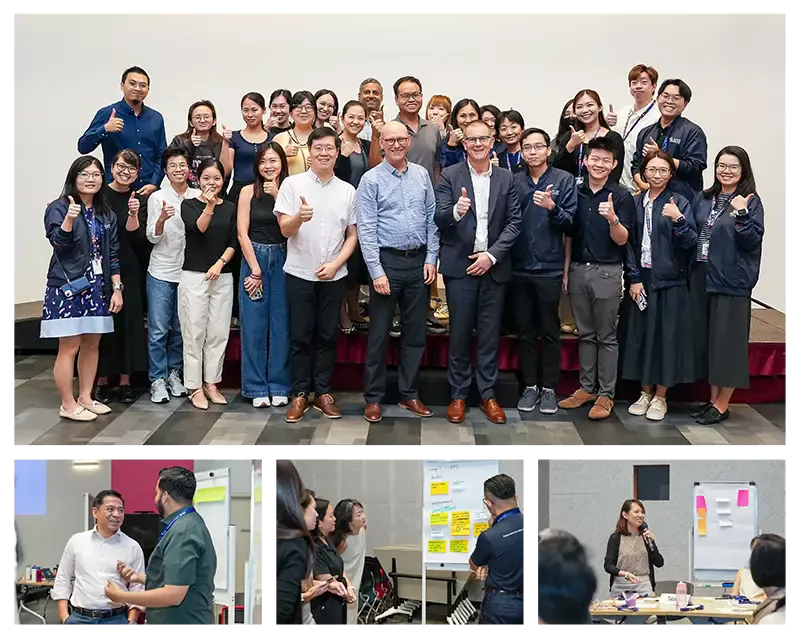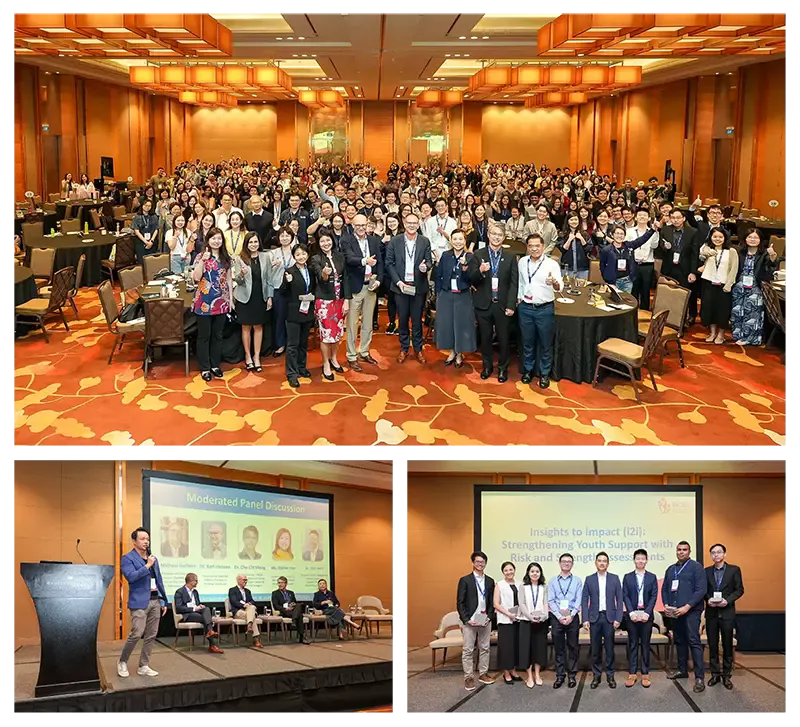Insights to Impact (i2i)
Bringing together experts to provide actionable insights and foster discussions that strengthen the sector’s ability to meet evolving needs.
On this page
Overview

Held 3-4 times annually, the Insights to Impact (i2i) series harness the collective expertise of sector stakeholders in research and practice. Events in the series, such as seminars and workshops, address key service user and sector needs, and provide actionable recommendations for stakeholders to implement in their work.
i2i also fosters an environment where stakeholders can engage in crucial discussions that build up a sector that is future-ready and effective in meeting the evolving needs of service users. They can:
Hear about the latest research and evaluation insights, and how they can drive practice, policy and decision-making
Enhance research and evaluation capabilities for service planning
Discover opportunities for collaboration and partnership
Contribute to a robust body of knowledge for evidence-based practice
Strengthening Youth Support with Risk and Strength Assessments (September 2025)
Held from 16 to 18 September 2025, the 3-day event aimed to enhance the social service sector’s knowledge and capabilities in youth offender rehabilitation.
During the event, two distinguished Professors, Dr Michael Daffern and Dr Karl Hanson, delivered keynote addresses and provided valuable consultation sessions with senior management and research staff from NCSS and the Ministry of Social and Family Development (MSF).

The highlight of the event was a seminar, where over 300 social service professionals, public officers, and academics gathered to explore cutting-edge research and its practical applications in their work. It was a full-day seminar with keynote speeches, a moderated panel discussion, and four plenary talks.

Key insights from the event:
Assessment and evaluation need to be based on evidence – to ensure interventions are grounded in facts rather than assumptions, leading to more effective outcomes for youth.
Assessment tools need to be standardised and consistent – to build a collective knowledge base for generating evidence-based insights to inform practice across the sector.
Assessment needs to focus on both risk and strengths – to develop comprehensive interventions that address immediate challenges while building on strengths to promote youth development and long-term wellbeing.
MSF and NCSS will be launching new tools designed to support frontline work by streamlining case prioritisation and providing real-time programme insights.
Sector partners and professionals can collaborate with NCSS to co-develop standardised assessment and evaluation strategies by leveraging on the data and benchmarks provided in NCSS’s Sector Evaluation Framework (SEF).
REACHing for positive outcomes for children and youth with early-life adversities (January 2025)
Participants from foster agencies, children’s homes, and social service agencies (SSAs) in the children and youth sub-sector gathered to focus on supporting children and youth facing early-life adversities through seamless throughcare.

The highlight of the event was a seminar, where over 300 social service professionals, public officers, and academics gathered to explore cutting-edge research and its practical applications in their work. It was a full-day seminar with keynote speeches, a moderated panel discussion, and four plenary talks.
The session featured an overview of the out-of-home care landscape in Singapore by Ministry of Social and Family Development (MSF), complemented by NCSS’s findings from the Resilience and Empowerment amidst Adversities of Childhood (REACH) study on the factors that promote resilience and positive outcomes for children and youth. Epworth Community Services added perspectives on the importance of integrated and stable care to ensure long-term positive outcomes for children and youth as best as possible. Participants also exchanged insights through a dialogue session, sharing insights from their unique positions and viewpoints.

Key areas for MSF, NCSS, and SSAs to collaborate on and work towards:
Implement early, family-centered, and trauma-informed interventions to address mental health needs and intergenerational trauma.
Cultivate supportive ecosystem through positive caregiving practices, training and supporting care providers, and partnering with schools and communities to build resilience.
Empower families through dedicated reunification preparation and robust community support systems.
Strengthen stakeholder collaboration across all phases in out-of-home care.
Adoption of evidence-based practice in the sector (July 2024)
With more than 450 participants from social service agencies (SSAs), public service and funders, important conversations were held on the benefits that evaluation brings to work in the social service sector, and how this could be implemented in practice.


NCSS was honoured to have the keynote delivered by Professor Martin Knapp, CBE, whose partnership and advice has been valuable in the setting up of the Sector Evaluation Framework. He spoke on the “What Works” model in the UK as a case study, and similar areas of opportunity for evidence-based practice and collaboration in Singapore.
NCSS, Tote Board, and SHINE Children and Youth Services also shared how evaluation facilitates the work of a sector developer, funder, and SSA respectively.
Evaluation sets the foundation for:
Quantifying good work
| Stronger partnerships
| Growth as one sector
|
The ABCs of implementing evaluation:
Ask when in doubt. Frank discussions with stakeholders will allow for addressing concerns and challenges, co-creating solutions, and collective growth as a sector.
Be curious and courageous. Start/follow through with evaluation efforts and be curious on what the data says. In the long run, this will help service planning be more sustainable and effective.
Collaboration is key. Tapping on one another’s expertise and aligning on key goals and priorities facilitates service planning and sector progress.
